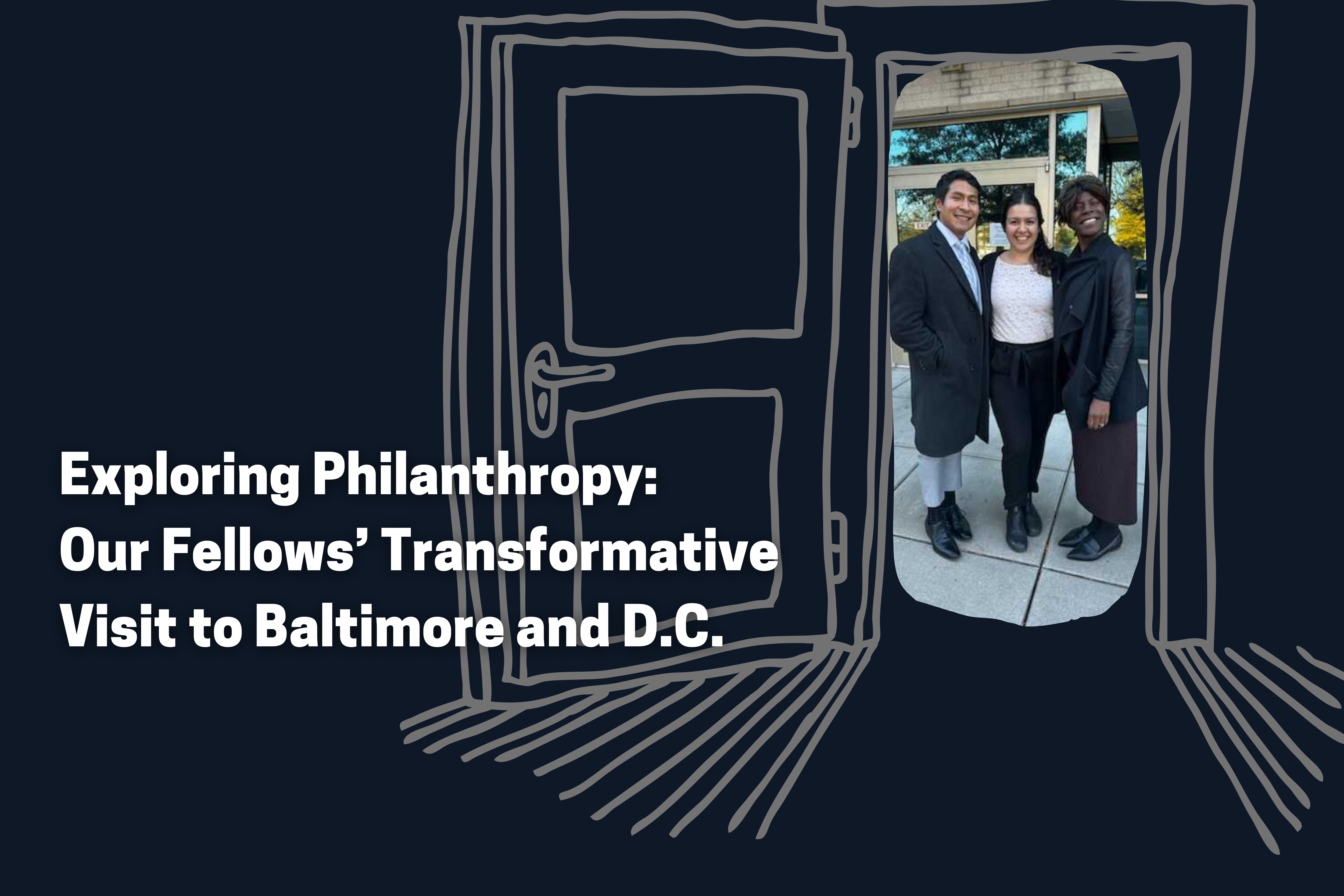
During October, our three dedicated Philanthropy Fellows—Ilana Ybgi, Santy Barrera, and Maya Katz-Ali—embarked on a visit to Baltimore and Washington, D.C, to gain hands-on experience meeting with funders and grantees from philanthropic organizations including Crown Family Philanthropies, the Harry and Jeanette Weinberg Foundation, and Charles and Lynn Schusterman Family Philanthropies. The Fellows’ experience gave them greater perspective on the philanthropic process and was an opportunity for them to bond as a cohort of future philanthropic professionals who value equity and diversity in Jewish communities.
“This trip was built into the Fellowship to help Fellows put the curriculum-based learnings and work they’ve done into context,” said Gabi Kuhn, the Senior Program Officer who oversees the Fellowship. Kuhn and JoCI’s CEO, Ilana Kaufman, developed the Philanthropy Fellowship to support and model a pipeline for Jews of Color in Jewish philanthropic roles.
The trip to Baltimore and D.C. was designed to give the Fellows perspective on the Jewish communities’ needs in different parts of the country, as well as to apply the skills they learned from our curriculum to real-world contexts. Santy Barrera expressed the impact of expanding their view of the interconnected network of Jewish philanthropies in the area: ”Since I’m still learning about the Jewish communal landscape, it was exciting to connect with The Associated [Jewish Federation of Baltimore] and to learn how their organization connects Jewish people and communities with resources, traditions, and Jewish community centers in Baltimore.”
Maya Katz-Ali emphasized that getting to view philanthropy behind the scenes helped the Fellows “to think about how all these moving pieces interact with one another, and how projects go from seed to bloom.” Offering their perspectives as young JoC professionals in rooms where non-white perspectives have often been underrepresented was a powerful experience for the Fellows and for the foundation staff who engaged with them. Katz-Ali shared, “Even though we’re so new to this work, sitting in these rooms with funders, people really kind of turned to us and would ask questions or show curiosity in hearing our opinions.”
Attending the Jewish Social Justice Roundtable Network Assembly added another layer to the Fellows’ experience, allowing them to meet grassroots leaders and grantees actively contributing to social justice initiatives. It underscored the importance of having more Jewish program officers of Color. Ilana Ybgi highlighted how the Assembly was an environment to connect with grantees free from the influence of funders. Ybgi explained, “I was able to put humility into action during this trip. When we attended the Jewish Social Justice Roundtable, there were several spaces where funders were not supposed to go. We had to respect the needs of the people doing the work and the call for affinity spaces that didn’t include funders.”
Lastly, and perhaps most importantly, the trips to Baltimore and D.C. gave the Fellows a chance to bond. The shared experience not only strengthened their camaraderie but also exemplified the power of the cohort model—a cornerstone of JoCI’s programming. The JoCI is deeply invested in the cohort model when it comes to our programming, precisely to encourage new JoC communities that can learn and grow together for generations to come. “The trip really shaped how we interact with each other, what we know about each other’s expertise, passions, and thoughts,” said Katz-Ali. “We really laughed a lot together which was so wonderful and made it such a unique experience to be in this time and this space together. We developed a better idea of one another’s workstyles, and got to tap into the passions we each have, and to call on each other for those things.”
The visit to Baltimore and D.C. was about more than just exploring philanthropy; it became a transformative experience that deepened understanding across the ecosystem, amplified our Fellows’ voices, and strengthened the bonds of a cohort of future philanthropists.


